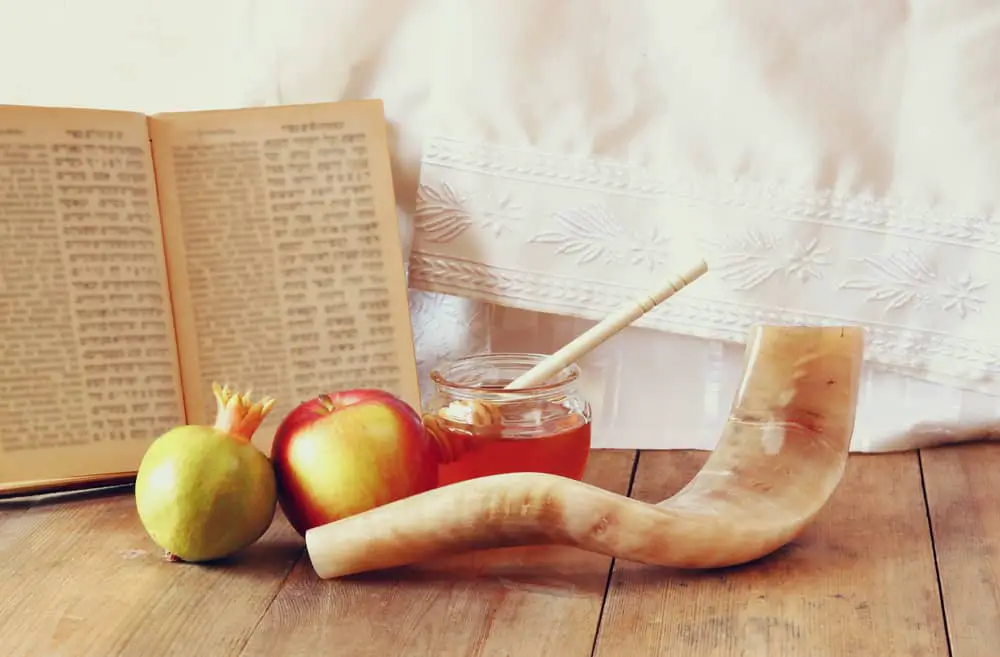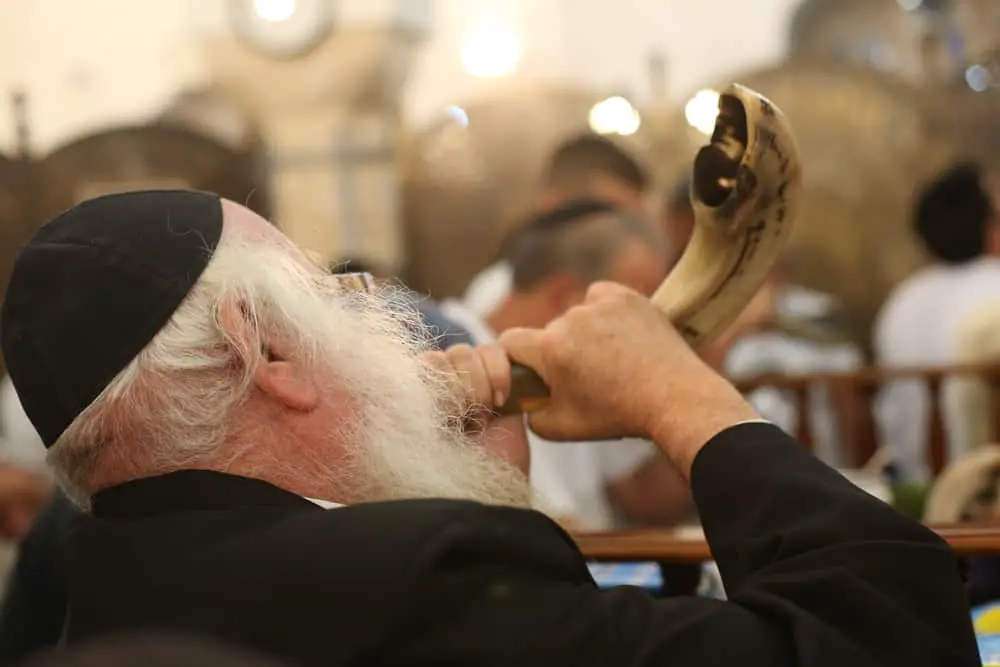Table of Contents
*This post may contain affiliate links. As an Amazon Associate we earn from qualifying purchases.
In the Jewish tradition, Rosh Hashanah is one of the most important holidays. Known as the Jewish New Year, Rosh Hashanah is held on the first and second day of Tishri. When translated from Hebrew, Rosh Hashanah means “head of the year,” or “the first of the year.” Despite its recognition as a “New Year’s” celebration, it bears little resemblance to the American New Year’s celebration.
What Is Rosh Hashanah?
While Rosh Hashanah doesn’t feature the drinking or partying of the American New Year, it does share one important thing in common: a focus on reflection and resolution. As one of the holiest days of the year, Rosh Hashanah encourages Jews to reflect on the events of the last year and make resolutions to improve their life and worship in the coming year.
While different communities of Jews celebrate Rosh Hashanah differently, one of the primary traditions is the sounding of the shofar in the synagogue. Each day, 100 notes are sounded on the shofar, which is a ram’s horn that is blown like a trumpet or horn. While the origins of this tradition are a bit foggy, many believe that the horn is blown as a call to repent and reflect. The only exception to this tradition is if Rosh Hashanah falls on Shabbat, in which case the horn stays silent.
Jews observing Rosh Hashanah will not work or conduct business on this day. Instead, most families go to synagogue, where the liturgy is expanded and special Rosh Hashanah prayers are recited. Many Jews also eat apples drizzled with honey, which symbolizes good luck and well wishes in the new year.
Jews observing Rosh Hashanah may also practice a something called Tashlikh, which is commonly known as “casting off.” During this ceremony, individuals walk into a body of flowing water and empty their pockets into the flow, which symbolizes the shucking off of sins and the ability to begin fresh in the new year.
While this tradition is not explicitly mentioned in the Torah, it is well-observed and is typically practiced on the afternoon of the first day of Rosh Hashanah.
When is Rosh Hashanah?
 The Rosh Hashanah calendar can be confusing because it, like so many Jewish holidays, changes time each year. Here Is when the holiday will occur for the next several years:
The Rosh Hashanah calendar can be confusing because it, like so many Jewish holidays, changes time each year. Here Is when the holiday will occur for the next several years:
- Year 5778. Begins at Sunset on September 20, 2017 and lasts until nightfall on September 22, 2017.
- Year 5779. Begins at sunset September 9, 2018 and runs until the evening of September 11, 2018.
- Year 5780. Begins at sunset September 29, 2019 and ends at nightfall on October 1, 2019.
- Year 5781. Begins at sunset of September 18, 2020 and lasts until nightfall on September 20, 2020.
The Rosh Hashanah Greeting
What many people don’t realize about Rosh Hashanah is that it has its own greeting. This is L’shanah tovah. This is generally regarded as a wish for a good year and is a friendly and amiable way to greet people during this time, regardless of your affiliation with them.
An Essential Jewish Holy Day
Rosh Hashanah stands out as one of the holiest and most notable days of the year. Dedicated to new beginnings, resolution, and reflection, this is one day that even minimally-observant Jews take very seriously and celebrate devoutly.
A happy day with an opportunity for fresh beginnings and more positive outlooks, Rosh Hashanah is central to Jewish traditions and remains one of the first holiday celebrations most Jews are exposed to, and one of the most memorable.

